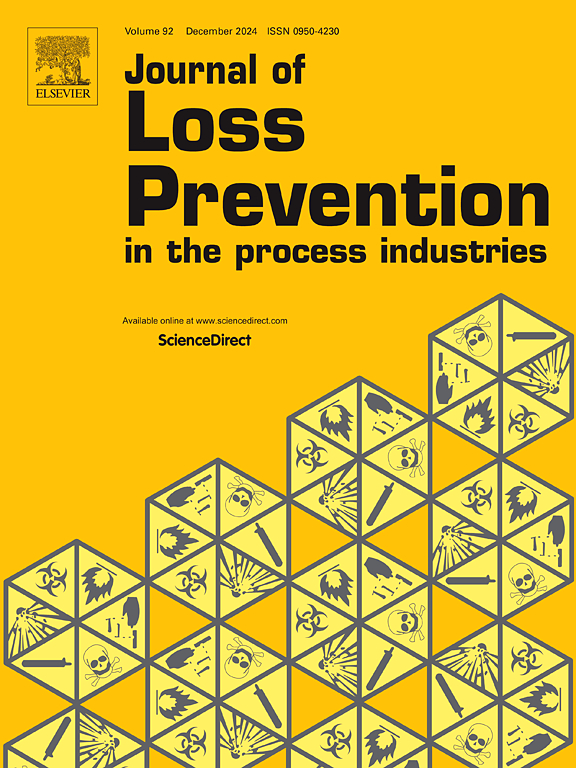Knowledge graph-based alarm management in petrochemical enterprises: A study on fusion and analysis of multi-source heterogeneous information
IF 4.2
3区 工程技术
Q2 ENGINEERING, CHEMICAL
Journal of Loss Prevention in The Process Industries
Pub Date : 2025-06-10
DOI:10.1016/j.jlp.2025.105706
引用次数: 0
Abstract
In response to the increasing emphasis on alarm management in the petrochemical industry, there has been an explosive growth in relevant information. However, this information is often scattered across different systems and databases, stored in various forms such as documents, tables, and images, making it challenging to uniformly store, share, and utilize multi-source heterogeneous information. This commonly leads to the problem of “Information Islands.” In order to effectively leverage knowledge in the field of alarm management in the petrochemical industry and overcome the challenge of non-interoperable information, a method for fusing multi-source heterogeneous information in petrochemical enterprise alarm management based on knowledge graph is proposed. This method aims to standardize the management of alarm-related information and achieve information fusion. Initially, the approach utilizes data from petrochemical enterprises and publicly available data in the field of alarm management to establish both local and global ontologies. Subsequently, mapping algorithms are designed to achieve a more accurate construction of the hybrid ontology. Based on this foundation, a knowledge graph for alarm management in the petrochemical industry is established. Additionally, corresponding modules for information storage and retrieval are developed. Through the application demonstration using real alarm management information from a petrochemical enterprise, the results indicate that the proposed method for fusing multi-source heterogeneous information in petrochemical enterprise alarm management can effectively achieve information fusion.
基于知识图的石化企业报警管理:多源异构信息融合与分析研究
针对石油化工行业对报警管理的日益重视,相关信息呈现爆发式增长。然而,这些信息通常分散在不同的系统和数据库中,以文档、表和图像等各种形式存储,因此很难统一存储、共享和利用多源异构信息。这通常会导致“信息孤岛”的问题。为了有效利用石化行业报警管理领域的知识,克服信息不可互操作的挑战,提出了一种基于知识图的石化企业报警管理多源异构信息融合方法。该方法旨在规范告警相关信息的管理,实现信息融合。最初,该方法利用来自石化企业的数据和警报管理领域的公开可用数据来建立本地和全球本体。然后,设计映射算法,实现混合本体的更精确的构建。在此基础上,建立了石化行业报警管理的知识图谱。此外,还开发了相应的信息存储和检索模块。通过石化企业真实报警管理信息的应用演示,结果表明所提出的多源异构信息融合方法在石化企业报警管理中能够有效地实现信息融合。
本文章由计算机程序翻译,如有差异,请以英文原文为准。
求助全文
约1分钟内获得全文
求助全文
来源期刊
CiteScore
7.20
自引率
14.30%
发文量
226
审稿时长
52 days
期刊介绍:
The broad scope of the journal is process safety. Process safety is defined as the prevention and mitigation of process-related injuries and damage arising from process incidents involving fire, explosion and toxic release. Such undesired events occur in the process industries during the use, storage, manufacture, handling, and transportation of highly hazardous chemicals.

 求助内容:
求助内容: 应助结果提醒方式:
应助结果提醒方式:


